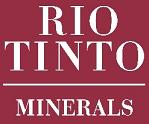Rio
Despite resource tax, China still a viable customer
 Speaking at the company's Melbourne annual general meeting yesterday, Mr Albanese said Rio was cautious about the near-term outlook because the global economy remained volatile and uncertain.
Speaking at the company's Melbourne annual general meeting yesterday, Mr Albanese said Rio was cautious about the near-term outlook because the global economy remained volatile and uncertain.
"Asian countries are having to contend with inflationary risks arising from the massive economic stimulus packages that were put in place last year," Mr Albanese said.
"At the same time, we have seen the recent sovereign debt crisis in Europe and its sweeping contagion into financial markets around the world."
Rio shares have lost a quarter of their value since the start of April, buffeted by concerns about fallout from Greece's debt and the effect of the Rudd government's planned 40 per cent tax on mining profits.
Chairman Jan du Plessis said he was deeply upset about the tax, calling it dangerous, with the potential to destroy Australia's excellent reputation in the global community.
Despite the planned tax, which was the major topic at the AGM, Mr du Plessis, said the business was an attractive proposition for investors.
"China's demand for iron ore, copper, coal and aluminium is expected to continue to grow over the next 15 years, after which time we expect to see increasing commodity demand from India," Mr du Plessis said.
Mr Albanese said industrialisation, urbanisation and increased productivity would double demand for iron ore, aluminium and copper in that time.
He said the outlook for aluminium was improving, with demand in China virtually back to pre-recession levels.
But while aluminium markets were getting better, Mr du Plessis declined the chance to back the $US40bn purchase of aluminium giant Alcan in 2007 when asked what was being done to hold the board and management accountable for it.
Mr du Plessis, who was not on the board when the purchase was made, instead stressed his support for Mr Albanese, saying it was time for Rio to get on with producing commodities after a hard year in 2009.
Rio is in a much better state than it was at the start of last year, when the global credit freeze forced it to agree to a $US19.5bn rescue package from Chinalco.
This was later rejected in favour of a huge $US15bn rights issue. A protest vote on Rio's remuneration report saw 37 per cent of shareholders vote against.
Mr Du Plessis would not say whether Chinalco, which remains Rio's largest shareholder, had supported the remuneration report.
Turning to the company's planned $US116bn ($140bn) iron ore joint venture with BHP Billiton, Mr du Plessis said the $US10bn of expected synergies remained in place.
"The industrial logic of putting these two businesses together in the Pilbara is just overwhelming and nothing that has happened in the last year has changed my mind on that," he said.
Neither he, nor Mr Albanese, would say whether major British shareholders had been calling for Rio Tinto to try to renegotiate for an increase to the $US5.8bn equalisation payment BHP would have to pay Rio if the partnership cleared regulators.
"There is too much focus on this number," Mr du PLessis said.
"I think the industrial benefits to us, and to BHP Billiton and to the industry, is what it's really about."
(Published by The Wall Street Journal – May 26, 2010)